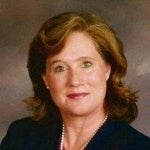Microloan Portfolio Management with Leslie Hoffman and Barbara Eckblad
Download slides (PDF)
About the webinar
Micro-finance organizations are in the mission-driven business of meeting the capital needs of business borrowers who are challenged with a non-traditional credit profile. This webinar explores the best practices for portfolio management in tracking and reporting the risk that is inherent in a lending portfolio. Content covers the essential elements of a complete risk management protocol that allows management and the Board of Directors to meet their responsibility in oversight of the organization’s risk. This session provides viewers with a clear and actionable outline of industry best practice in portfolio management.
In exchange for viewing the webinar free of charge, FIELD at the Aspen Institute is asking participants who work in microenterprise development programs to complete the US Microenterprise Census Survey. The US Microenterprise Census is an online survey that counts and collects data on the microenterprise industry. The data reported to the Census is a crucial tool to help build the industry and make the case for its work. To report your data or for more information on the Census, visit microtracker.org/explore/industry-data.
Featured speakers
 Barbara Eckblad
Barbara Eckblad
Principal, The Eckblad Group
Community development and finance has been a personal and professional passion for Barbara Eckblad since she entered the workforce. While starting in the commercial credit department of a regional bank in Wisconsin, analyzing borrower profiles, she spent evenings planning a tourism and marketing initiative for the small dairy farming community. During the first tech boom twenty years ago, Barbara helped reengineer a stressed small tech company. Additionally, Barbara founded a commercial and residential real estate brokerage firm. These experiences gave her first-hand exposure to the challenges facing entrepreneurs. She transitioned her business to employee ownership in 2008 to devote her full time and attention to microfinance, CDFIs, and the wellbeing of underserved and at-risk populations.
 Leslie Hoffman
Leslie Hoffman
Principal, LEH Consulting Group
Leslie Hoffman’s career in community development began during her service as a municipal development volunteer in the Peace Corps in rural El Salvador. She went on to work in US microfinance, playing several management and senior-level roles during an eight-year career at Accion New Mexico – Arizona – Colorado, including vice president positions overseeing lending, portfolio quality, client service and strategic partnership development. Leslie helped the organization expand its footprint into Arizona and Colorado and grow to become the nation’s fourth-largest microlender. In 2013, she launched a national consulting practice that focuses on capacity building in the community development sector. The firm specializes in strategic management support for public, private, and social sector clients and operations improvement for Community Development Financial Institutions (CDFIs).
For more information
Contact Lavanya Mohan, lavanya.mohan@aspeninst.org, p. 202-736-2939.